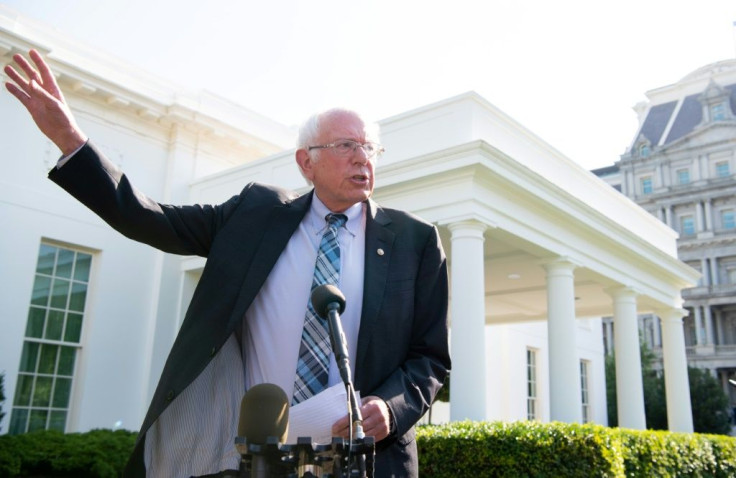Sanders May Travel To Arizona, West Virginia To Pitch Spending Bill

Sen. Bernie Sanders, I-Vt., did not rule out visits to West Virginia and Arizona — the home states of centrist Democratic senators Joe Manchin and Kyrsten Sinema, respectively — to ask their constituents to pressure their senators into supporting the $3.5 trillion infrastructure bill.
The bill includes many of President Joe Biden’s promises such as universal pre-K, free community college, paid sick and parental leave, funding healthcare and childcare, combating climate change, and expanding Medicare to cover dental, vision, and hearing. Sanders has called the $3.5 trillion price tag "the minimum of what we should be spending,” while Manchin and Sinema have expressed concerns that it's too much spending.
This weekend, Sanders will visit Iowa and Indiana — two states that voted for Donald Trump in 2016 and 2020 — to pitch Democrats’ spending plans.
But Manchin and Sinema's states are the most pivotal. West Virginia is one of the most right-leaning states in the county, while Arizona has become a swing state. According to Politico, Sanders said if he could, he would pitch the infrastructure plan to all 50 states.
Unless we pass the reconciliation bill:
— Bernie Sanders (@SenSanders) August 24, 2021
-Seniors won't get dental, vision, hearing & home care
-Drug prices will soar
-Families will be denied $300 a month per kid
-Climate change will worsen.
-Families won't receive childcare & affordable housing
No reconciliation, no deal
Bernie Sanders says that the $3.5 trillion price tag of the reconciliation bill is not up for debate. “I already negotiated. This is, in my view, the minimum of what we should be spending.”https://t.co/lZQPNZW9Sa
— Truthout (@truthout) August 26, 2021
The Democrats will need all 50 senators on board, including the tie-breaking vote of Vice President Kamala Harris. Majority Leader Chuck Schumer is determined to pass the reconciliation bill following the success of the bipartisan infrastructure bill that passed by a vote of 69-30.
House Speaker Nancy Pelosi has said she would prevent both bills from coming to a vote in the House unless both pass the Senate.
Manchin and Sinema are the only two roadblocks for Senate Democrats to pass the legislation.
“I have made it clear while I will support the beginning of this process, I do not support a bill that costs $3.5 trillion,” Sinema told the Arizona Republic in July.
Manchin took to Twitter on Aug. 11 to explain that he voted for the procedural budget reconciliation process because he believes it is necessary to discuss the fiscal policies of the country. Manchin says he has “serious concerns” about the price tag after Congress had already spent $5 trillion trying to stimulate the economy.
My statement raising concerns about the consequences of passing a $3.5 trillion budget: pic.twitter.com/gGsEXcVTxd
— Senator Joe Manchin (@Sen_JoeManchin) August 11, 2021
“Given the current state of the economic recovery, it is simply irresponsible to continue spending at levels more suited to respond to a Great Depression or a Great Recession,” Manchin said.
The bill’s ambitious price tag is just over half the amount that Sanders initially proposed. He has remained determined to pass the bill containing many of his ideas calling the bill “non-negotiable,” in an interview with Politico.
“But at the end of the day, every Democrat understands that it is terribly important that we support the president's agenda. And most of these ideas came from the White House,” Sanders said.
Sanders remains confident the bill will pass both the House and Senate. "Every member of the caucus understands that this is transformative for the American people, it is the right thing to do," he said.
A recent poll conducted by USA Today-Suffolk University showed that 52% of Americans support the bill.






